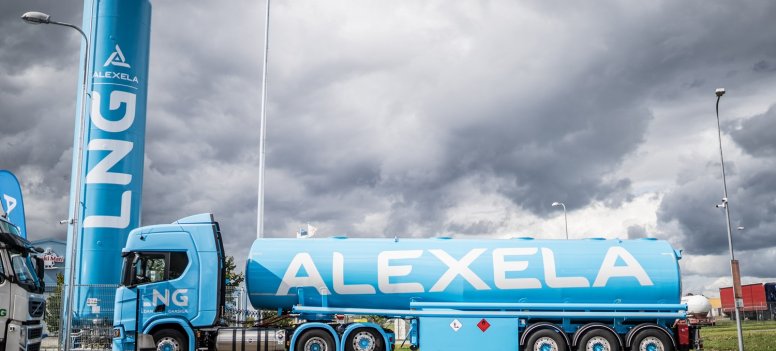In addition to household customers, the LNG terminal provides opportunities for both industry and heavy transport
7. April 2022
The creation of a liquefied natural gas (LNG) terminal will also encourage the transition to sustainable fuel in heavy transport. The LNG terminal would not only be an essential gas network independent of Russia's gas supplies to households and industries connected to the pipeline, but would also create a favourable opportunity for a shift to more environmentally friendly fuels in heavy transport.

"Over the past year, Alexela has repeatedly supplied LNG for heavy transport, for example, to locomotives, trucks and, of course, the output of this fuel is also maritime. It is true that liquefied natural gas has an important value for heavy transport in getting rid of Russia's gas dependence, in terms of environmental sustainability," said Aivo Adamson, CEO of AS Alexela.
The LNG terminal will allow gas independent of Russia's gas supplies to be routed to the gas network for both household customers and industries connected to the pipeline. At the terminal, liquefied natural gas is heated and directed to the gas network. Another important output is maritime, heavy transport, trucks and rail transport, or locomotives that can be refuelled with LNG. The next step is to use bio-LNG, or liquefied biomethane, for refuelling.
For example, Alexela has also supplied this fuel to LNG locomotives in Estonia over the past year. Five LNG fuel trucks operate in the energy company's fleet today.
“Promoting sustainable transport and finding new alternatives for the Estonian people has always been important to us at Alexela. We are the first in the Baltics to supply liquefied biomethane in order to make it more accessible on the domestic market, and the first to refuel locomotives with LNG and bunker ships. This is our targeted work to reduce emissions from the transport sector and ensure security of supply."





